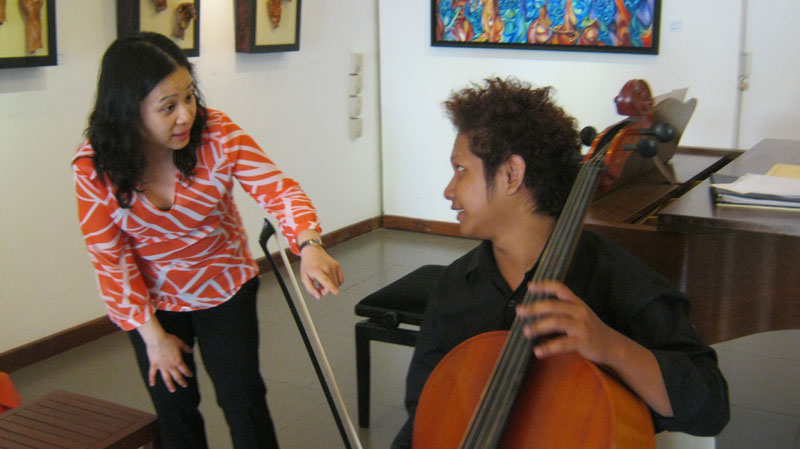When Indonesian pianist Cicilia Yudha held master classes for Cambodian musicians a few days ago, she did not teach them about the technical aspects of playing piano, violin or clarinet.
“I was teaching the music itself: The instrument is just a medium, you know,” the 33-year-old pianist explained. “There is a certain language that we talk about, how long is the phrase for example: This is just like storytelling.”

A few years ago, when a visiting musician came to Cambodia, there was a glaring need to have him or her teach aspiring Cambodian musicians how to technically play Western classical instruments.
“But we have seen progress at that level,” said flutist Anton Isselhardt of the Artsplus Foundation, who has organized the annual Western classical music festival in the country for more than a decade. “There have been advances in the technical ability of Cambodian musicians.”
So the master class he organized during Ms. Yudha’s visit focused on the essence of music, not on how to play the notes.
Ms. Yudha, who will give a concert at Meta House Sunday night, first visited Phnom Penh in 2011. The economic progress made since then is palpable, she said. “I can see that development in Cambodia depends so much on the younger generation, their emotional stability and development as well.”
Awarded the Rosario Marciano Prize by the Vienna International Pianists Association in Austria, Ms. Yudha has also won several competitions in the U.S. including the Cleveland Institute of Music Concerto Competition. She currently teaches at the U.S. Dana School of Music Faculty at Youngstown State University in Ohio.
Her concert, starting at 8 p.m. Sunday, is part of the Piano Shop Concert Series organized by the Artplus Foundation. The works Ms. Yudha will perform will span centuries—from music by Scarlatti and Beethoven, to Schumann, Ravel and Berio.
“I look not just for what will be entertaining but for what will emotionally speak,” she said.



